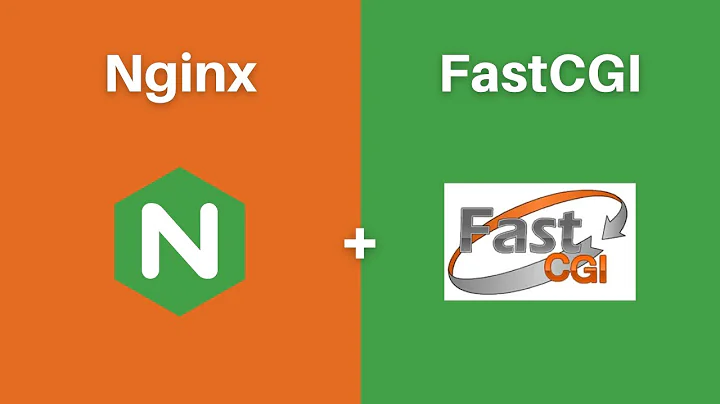Nginx - PHP7 unexpected FastCGI record while reading response header from upstream
Solution 1
It appears it was a bug in PHP that was fixed in version 7.0.16 dated 16 Feb 2017.
Fixed bug #67583 (double fastcgi_end_request on max_children limit).
Solution 2
Ok, all php-fpm pools are dead for several minutes at the same time, and the only thing that changed with php 5.6 => php 7. What changed with php7 ? What is global across all php-fpm pools ? The opcache. Would you be kind enough to provide your php.ini ? If not, please check your opcache configuration and verify at least these parameters:
zend_extension=opcache.so;
opcache.enable=1; # on or off on your config ?
opcache.memory_consumption=64; # Too small for you ?
opcache.max_accelerated_files=2000; # maybe to small for you ?
opcache.force_restart_timeout="180"; # Oh!!! This is the time of your outage!!
change the force_restart_timeout from 180 to 120 , change opcache.log_verbosity_level to something >=3 and look if the outage is shorter than usual.. Then I suggest your review opcache runtime configuration and tune it correctly for your site.
Related videos on Youtube
Jai
Updated on September 18, 2022Comments
-
Jai over 1 year
I upgraded to PHP7 (PHP 7.0.14) on a production server (CentOS 6.8) two days ago. Now, I am getting following error in nginx (1.10.2-1) logs.
2017/01/20 08:20:04 [error] 7654#7654: *153301 upstream sent unexpected FastCGI record: 3 while reading response header from upstream, client: XXX.XXX.XXX.XXX, server: example.com, request: "GET / HTTP/1.0", upstream: "fastcgi://unix:/var/run/php-fpm/example.fpm.sock:", host: "www.example.com"
- We have multiple websites all running their individual php-fpm pool and this error comes on all websites at same time.
- Browser show "502 Bad Gateway" during this error on all websites.
- This error comes for 1-2 minutes and after that everything returns to normal automatically.
- It happened three times in a day at different times.
- There was no problem with PHP5.
- I have tried to blacklist all application cache folder in opcache
We have another server with similar setup that was upgraded to PHP7, it has no such issues.
How should I troubleshoot and find a solution to this problem?
UPDATE 1 Server Details
CPU: 2x Intel(R) Xeon(R) CPU E5-2620 0 @ 2.00GHz
RAM: 256GB
OS: CentOS release 6.8
Kernal: 2.6.32-504.8.1.el6.x86_64
PHP: Using 7.0.14-3 from IUS repo
Nginx: 1.10.2-1Server is used as a web server to run multiple sites running an popular open source PHP application. We use Nginx with php-fpm as backend. Each website has a sperate php-fpm pool and different sockets. PHP application is already compatible with php7 and the only change is upgrade to PHP7.
UPDATE 2
Nginx main config
user apache; worker_processes auto; error_log /var/log/nginx/error.log alert; pid /var/run/nginx.pid; events { use epoll; worker_connections 4024; multi_accept on; } http { include /etc/nginx/mime.types; default_type application/octet-stream; server_names_hash_bucket_size 256; server_names_hash_max_size 1024; log_format main '$remote_addr - $remote_user [$time_local] "$request" ' '$status $body_bytes_sent "$http_referer" ' '"$http_user_agent" "$http_x_forwarded_for"'; access_log /var/log/nginx/access.log main; client_max_body_size 512M; ssl_protocols TLSv1 TLSv1.1 TLSv1.2; sendfile on; tcp_nopush on; tcp_nodelay on; keepalive_timeout 65; gzip on; gzip_http_version 1.1; gzip_vary on; gzip_comp_level 6; gzip_proxied any; gzip_min_length 1000; gzip_types text/plain text/css application/json application/javascript application/x-javascript text/javascript text/xml application/xml application/rss+xml application/atom+xml application/rdf+xmli font/ttf font/otf image/svg+xm; gzip_buffers 16 24k; gzip_disable msie6; fastcgi_connect_timeout 120; fastcgi_send_timeout 1200; fastcgi_read_timeout 1200; fastcgi_buffer_size 256k; fastcgi_buffers 16 256k; fastcgi_busy_buffers_size 256k; fastcgi_temp_file_write_size 256k; fastcgi_intercept_errors on; keepalive_requests 10000; include /etc/nginx/conf.d/*.conf; # Load all vhosts ! include /etc/nginx/sites-enabled/*.conf; }Individual nginx site template
server { server_name @@HOSTNAME@@ www.@@HOSTNAME@@; root "@@PATH@@"; index index.php index.html index.htm; add_header Cache-Control public; client_max_body_size 512m; access_log @@LOG_PATH@@/access.log; error_log @@LOG_PATH@@/error.log; location / { # This is cool because no php is touched for static content try_files $uri $uri/ $uri/index.php @rewrite /index.php$uri?$args; } location @rewrite { rewrite ^ /index.php; } location ~ \.php$ { send_timeout 1200; proxy_read_timeout 1200; proxy_connect_timeout 120; fastcgi_read_timeout 1200; fastcgi_pass unix:@@SOCKET@@; fastcgi_index index.php; fastcgi_param SCRIPT_FILENAME $document_root$fastcgi_script_name; include fastcgi_params; } location ~* \.(js|css|png|jpg|jpeg|gif|ico)$ { expires max; log_not_found off; access_log off; } location ~* \.(html|htm)$ { expires 30m; } location ~* /\.(ht|git|svn|bak) { deny all; } location ~ ^/sites/.*/files/styles/ { try_files $uri @rewrite; } }PHP FPM pool template
[@@USER@@] listen = /var/run/php-fpm/@@USER@@.fpm.sock listen.owner = nobody listen.group = nobody listen.mode = 0666 user = @@USER@@ group = @@USER@@ pm = ondemand pm.max_children = 50 pm.process_idle_timeout = 300s pm.max_requests = 5000 rlimit_files = 1024 request_terminate_timeout = 1200s security.limit_extensions = .php php_admin_value[session.save_path] = "@@HOME_DIR@@/_sessions" php_admin_value[error_log] = "@@HOME_DIR@@/logs/www-error.log"UPDATE 3 When problem occurs
Request 1
GET /moodle/ HTTP/1.0 User-Agent: Pingdom.com_bot_version_1.4_(http://www.pingdom.com/) Host: www.example.comReceived header
502 Bad Gateway Server: nginx/1.10.2 Date: Wed, 25 Jan 2017 12:32:00 GMT Content-Type: text/html Content-Length: 173 Connection: closeReceived content
<html> <head><title>502 Bad Gateway</title></head> <body bgcolor="white"> <center><h1>502 Bad Gateway</h1></center> <hr><center>nginx/1.10.2</center> </body> </html>-
 Admin over 7 yearsUpdate your question with your server block - or one of your server blocks as you mentioned there are multiple websites running on your server - and explain a bit more about what you are usually doing with php-fpm. You question is not explicit enough, and needs more information to be complete.
Admin over 7 yearsUpdate your question with your server block - or one of your server blocks as you mentioned there are multiple websites running on your server - and explain a bit more about what you are usually doing with php-fpm. You question is not explicit enough, and needs more information to be complete. -
Jai over 7 years@FarazX I have tried to add more information. If any further information is required, please let me know.
-
 Peter Nduati over 7 yearsHave you updated your fastcgi_pass entry in conf.d for the site configurations with the proper path to php7.0-fpm.sock ?
Peter Nduati over 7 yearsHave you updated your fastcgi_pass entry in conf.d for the site configurations with the proper path to php7.0-fpm.sock ? -
 Admin over 7 yearsThanks. What is the open-source application you are using? BTW, as @PeterNduati mentioned you should pay close attention to your NGINX configuration, that's why I asked for your server block. That'd be great if you update your question with one of your server blocks - i.e.
Admin over 7 yearsThanks. What is the open-source application you are using? BTW, as @PeterNduati mentioned you should pay close attention to your NGINX configuration, that's why I asked for your server block. That'd be great if you update your question with one of your server blocks - i.e.server { ... }. -
 Tim over 7 yearsYou seem to be trying to make things difficult for yourself by not sharing sufficient applicable information when asked, for example by FarazX. You need to share your Nginx configuration. Ideally do a curl -k (show headers) when the problem happens and post that output with applicable Nginx access/error and PHP access/error logs. The 502 definition on Wikipedia suggests it's a problem with the upstream server, ie PHP-FPM.
Tim over 7 yearsYou seem to be trying to make things difficult for yourself by not sharing sufficient applicable information when asked, for example by FarazX. You need to share your Nginx configuration. Ideally do a curl -k (show headers) when the problem happens and post that output with applicable Nginx access/error and PHP access/error logs. The 502 definition on Wikipedia suggests it's a problem with the upstream server, ie PHP-FPM. -
Jai over 7 years@FarazX I am sorry I couldn't make out that you have asked about nginx server block. Tim, I have added information. Peter, Yes, fastcgi_pass path is correct. If you notice, this problem occurs randomly and not always.
-
Jai over 7 yearsfastcgi_pass value is correct else there would always be an error. If you notice, error is random and occurs only few minutes in a day.






